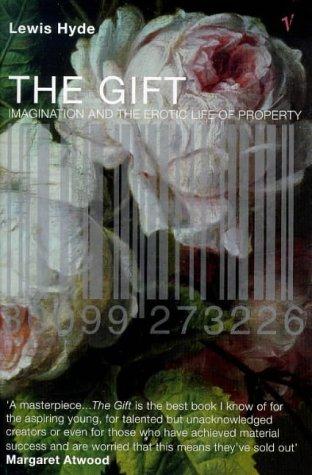4thace reviewed The Gift by Lewis Hyde
The tension between creativity and capitalism
4 stars
This book had been on my To Be Read list for many years waiting for me to devote some time to the artistic mindset. It pits artistic creativity against the demands of the capitalist market and looks at what accommodations art needs to continue being lively. In past societies organized around gift exchange as a marker of prestige, those who produced art were often seen as channeling a gift to the entire community, not judged by how much price they could command. The gift economy connected people and affirmed relationships. The book takes an in depth look at the thoughts of two American poets, Walt Whitman and Ezra Pound, to see how they fared in the 19th and 20th centuries as our present day economy was being set in place. What is pretty clear is how neither one really did well by market standards, even while they were lauded by …
This book had been on my To Be Read list for many years waiting for me to devote some time to the artistic mindset. It pits artistic creativity against the demands of the capitalist market and looks at what accommodations art needs to continue being lively. In past societies organized around gift exchange as a marker of prestige, those who produced art were often seen as channeling a gift to the entire community, not judged by how much price they could command. The gift economy connected people and affirmed relationships. The book takes an in depth look at the thoughts of two American poets, Walt Whitman and Ezra Pound, to see how they fared in the 19th and 20th centuries as our present day economy was being set in place. What is pretty clear is how neither one really did well by market standards, even while they were lauded by peers. Art still semes to come from a different place that doesn't translate into a living unless one can take advantage of patronage and sponsorships explicitly outside of the market for creative work. I did not know about Pound's ideas for an alternative system of money which decays as it goes unused, one which never had a chance at adoption.
In the end, the book returns to the idea that some gift relationship which fosters creativity can in some way coexist with the market economy. It would have been interesting to know what the author would think of crowdsourcing and patronage using the internet as a medium as ways to support art outside of the market.
An artist who does not need to live off of their art can create art today. I count myself among these in this stage of my life. I am still concerned for fellow creatives who do need to come up with a living in a heavily capitalistic economy, who likely have to find alternative funding as these dwindle.

